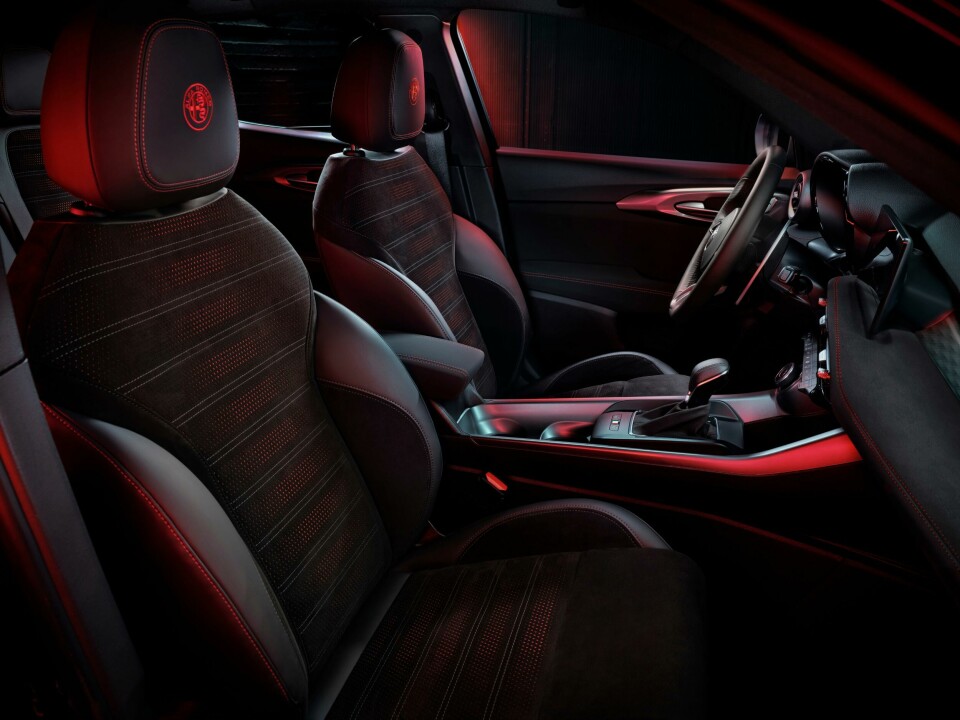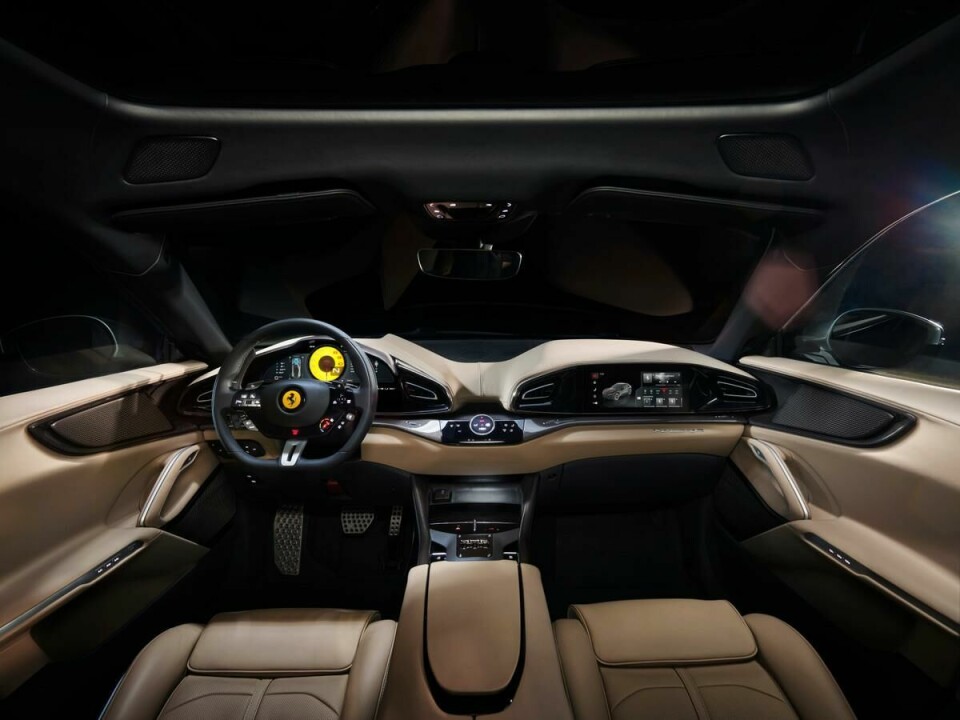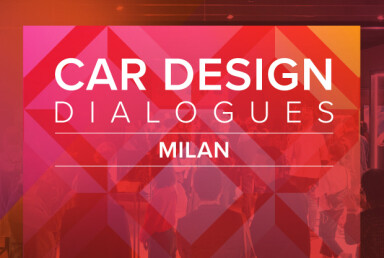
Alcantara targets sustainability without compromise
A new partially-recycled version of Alcantara is on the market – Car Design News was invited to Italy for a closer look and a conversation with the boss, Andrea Boragno
Premium material supplier Alcantara has revealed a new product line that marks an evolution in the material’s make-up. In effect, it is shifting toward a greater proportion of sustainable materials, a process that chairman Andrea Boragno says could lead to a product that only uses recycled materials within the next three to five years.
The first car to sport the ‘new’ Alcantara is the Ferrari Purosangue, the supercar maker’s controversial first stab at an SUV (although the preferred expression is “four-door, four-seater.”) This new version of Alcantara features 68% post-consumer recycled polyester, officially certified by the ICEA’s Recycled Claim Standard (RCS) which verifies and traces the sourcing and use of recycled materials. Boragno says the company underwent “intense testing” to ensure it could prove everything was above board. That 68% figure is significant as it effectively means that all the polyester used in standard Alcantara is now recycled in this version.

Boragno has been hyper critical of greenwashing, which he says has allowed many similar companies to get away with the bare minimum. “There is a serious issue with transparency [in the industry],” he said during a tour of the Alcantara plant in Umbria, nestled in the hills north of Rome. “We delayed the introduction of this new material because we had to get it right and we had to be able to show we are about more than just words. We have a fact-based approach and are certified for all elements.” Alcantara bosses voiced similar concerns to Car Design News back in March 2021, with Carlo Ammirati, Sustainability Director, stating at the time that “there is a lot of misplaced talk about sustainability,” and that “the market is rife with greenwashing.”
Alcantara has worked so hard to build up its cache in the industry, says Boragno, that he is careful to avoid branching out with new sub-brands
An artisanal process, Alcantara is essentially made by converting clear pellets of different plastics into arguably the world’s most renowned premium textile. These pellets are gradually broken down into thin strands of fibre, which are then painstakingly wound, pulled, stamped, cross-threaded and even needled to create a finished roll of ultra-soft, felt-like material. This can then be sold as is in an attractive greige or mechanically dyed in any colour you can imagine. The company is keen to push the idea of Italian craftsmanship, which becomes particularly evident at the end of the production line where quality control is carried out by hand, with every inch of each roll inspected by torch and brush.
Alcantara is both a brand and a product, and despite the introduction of a partially recycled version, the branding will remain unchanged. It is a little confusing to say the least – there are two versions but one name. Alcantara has worked so hard to build up its cache in the industry, says Boragno, that he is careful to avoid branching out with new sub-brands. And this thinking extends to new markets. Alcantara recently partnered with Microsoft to clad the new Surface Pro laptop, a big win for the company and one that Boragno personally sees as a signal of growing interest to blend functionality with design.
We may see Alcantara reaching further into the consumer electronics space in coming years, but only in cases where it makes sense. The company has been stung before, agreeing to work with one sofa designer that gradually moved away from the top end of the market and began selling in bulk and at discounted prices. This is not the Alcantara way, and the deal was swiftly scrapped.
The challenge, says Boragno, is that the company must push its sustainability goals further without hampering the quality of the material. In other sectors and industries, a boost in environmental credentials is often seen by the consumer as an acceptable compromise. This same thinking may well extend to certain buyers in the luxury car market where Alcantara dominates, but Boragno has other ideas. As Alcantara uses a greater proportion of recycled or bio-derived material, the level of quality “must be the same, or better,” he affirms. “There can be no compromises.”
Away from the main factory sits a duo of manufacturing buildings where basic Alcantara rolls are transformed into three-dimensional, multi-coloured and tailor-made products
Looking ahead, there are other trends guiding the movements of the company. A significant shift is electrification, which Boragno believes could place a greater emphasis on the fit-and-feel of the interior. “With EVs, you need to add emotion because there is no ICE,” he explains. “The interior plays an important role in that.”
Alongside its efforts in sustainability, the company is also going to great lengths on the customisation front. Away from the main factory sits a duo of manufacturing buildings where basic Alcantara rolls are transformed into three-dimensional, multi-coloured and tailor-made products. This division is an internal department that was created to spearhead what the team calls “extreme customisation.” Seat covers, headlinings, door cards, floor mats – they can all be tailored to suit individual brands. On show was a selection of recent projects, ranging from bespoke projects with Lamborghini, Ferrari and Bentley to the Jaguar F-Type SVR and the Alfa Tonale, a popular project among team members anecdotally.
But there are some names that seem to stick out, such as Renault, Opel and Peugeot. These are not traditionally premium automakers, but there has been a natural percolation from the top end of the market into mainstream models.
There is a growing expectation for a high-end interior across virtually all segments today, but Alcantara, as always has been selective. It has supplied the new Peugeot 408, for example, but only the most luxurious First Edition trim package that is sold in limited numbers. With Renault, Alcantara has serviced the Megane R.S. model, which again sits at the top of the Megane spectrum. The complex manufacturing team expects the trend to continue, which will push them to find ever more exciting solutions.
At the centre of Alcantara’s movements today however is the introduction of recycled and bio-derived materials. Boragno is keen to emphasise that this will be an evolutionary process and the Alcantara name will live on, but in a more sustainable manner. For now, there will be two versions under the same name and the recycled version will be used on a project-by-project basis – including the cover of the company’s latest sustainability report, no less. Offered in lime green, Car Design News can confirm that the look and feel is identical to the original material.


























